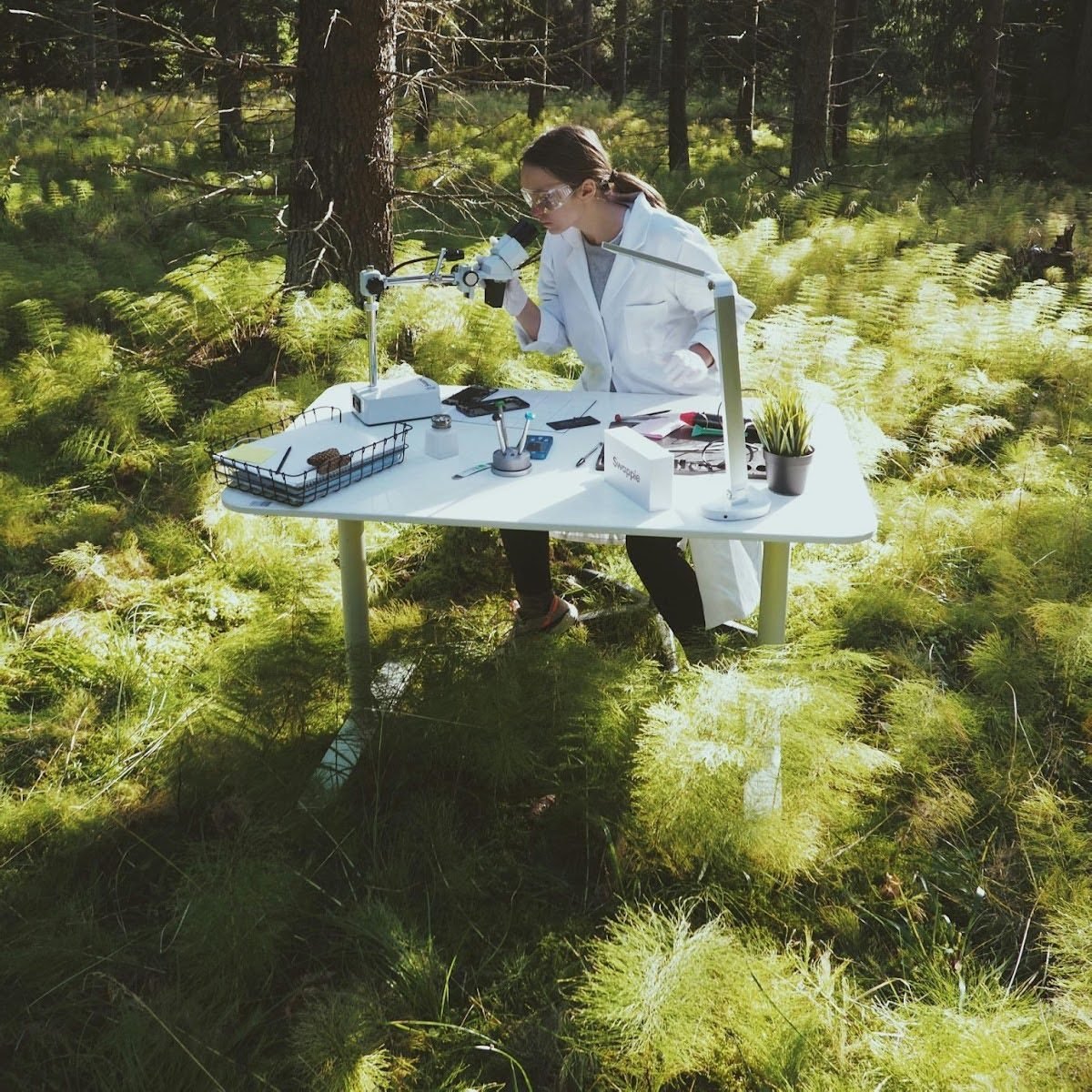
Unlocking the Wonders of Natural Sciences
Natural sciences encompass a vast array of disciplines that seek to understand the natural world and the phenomena that occur within it. From the microscopic world of atoms and molecules to the vast reaches of outer space, natural sciences offer a fascinating journey of exploration and discovery. In this comprehensive guide, we delve into the diverse fields of it, uncovering the secrets of the universe and the fundamental principles that govern it.
Understanding Natural Sciences
1. Defining Natural Sciences
Natural sciences, also known as the physical sciences, are branches of science that study the physical and natural world through empirical observation, experimentation, and analysis. These disciplines seek to uncover the underlying laws and principles that govern the behavior of matter, energy, and living organisms. It encompass a wide range of fields, including physics, chemistry, biology, astronomy, earth sciences, and environmental science.
2. Interdisciplinary Connections
While each natural science discipline has its own focus and methodologies, they are interconnected and often overlap in their research and discoveries. For example, physics provides the foundation for understanding the fundamental forces and particles that govern the universe. While chemistry explores the composition, structure, and properties of matter. Biology, on the other hand, studies living organisms and their interactions with the environment, drawing upon principles from both physics and chemistry.
Exploring the Branches of Natural Sciences

1. Physics
Physics is the study of matter, energy, motion, and the fundamental forces that govern the universe. From the smallest subatomic particles to the largest galaxies, physics seeks to understand the underlying principles that govern the behavior of all physical phenomena. Branches of physics include classical mechanics, electromagnetism, thermodynamics, quantum mechanics, and relativity.
2. Chemistry
Chemistry is the study of the composition, structure, properties, and reactions of matter. It explores the behavior of atoms, molecules, and chemical bonds, as well as the transformations that occur during chemical reactions. Branches of chemistry include organic chemistry, inorganic chemistry, physical chemistry, analytical chemistry, and biochemistry.
3. Biology
Biology is the study of living organisms and their interactions with each other and the environment. It encompasses a wide range of sub-disciplines, including genetics, ecology, physiology, microbiology, evolutionary biology, and cell biology. Biology seeks to understand the structure, function, and diversity of life on Earth, from single-celled organisms to complex ecosystems.
4. Astronomy
Astronomy is the study of celestial objects such as stars, planets, galaxies, and the universe as a whole. It explores the origins, evolution, and properties of astronomical bodies, as well as the processes that govern their behavior. Branches of astronomy include observational astronomy, theoretical astrophysics, cosmology, and planetary science.
5. Earth Sciences
Earth sciences encompass a variety of disciplines that study the Earth and its geological processes. This includes geology, which focuses on the structure, composition, and history of the Earth’s crust. Also, meteorology, oceanography, and environmental science study the Earth’s atmosphere, oceans, and climate.
The Importance of Natural Sciences
1. Natural Sciences Advancing Scientific Knowledge
It play a crucial role in advancing our understanding of the natural world and the laws that govern it. Through observation, experimentation, and analysis, scientists uncover new discoveries and develop theories that expand the boundaries of human knowledge.
2. Natural Sciences Solving Real-World Problems
This provides the foundation for addressing real-world problems and challenges. From developing new technologies and medicines to mitigating environmental pollution and addressing climate change. By applying scientific principles and methodologies, scientists can develop innovative solutions that improve the quality of life for humanity.
3. Natural Sciences Inspiring Curiosity and Exploration
It inspire curiosity and a sense of wonder about the world around us. From the mysteries of the cosmos to the intricacies of the microscopic world, it encourages exploration and discovery, fostering a lifelong love of learning and inquiry.
4. Informing Public Policy and Decision-Making
Natural sciences provide essential information and data that inform public policy and decision-making on issues such as public health, environmental protection, and resource management. Policymakers rely on scientific research and evidence to develop informed policies and regulations. This addresses societal needs and promotes the common good.
Unveiling the Advantages of Natural Sciences: Empowering Understanding and Innovation

Natural sciences are a collective endeavor to understand the physical world and its phenomena. It offers a myriad of advantages that extend far beyond academic pursuits. From fostering innovation to addressing real-world challenges, this science play a crucial role in shaping our understanding of the world and improving the quality of human life. Let’s delve into some of the key advantages:
1. Advancing Scientific Knowledge
It serve as the foundation for expanding our understanding of the world. Through rigorous observation, experimentation, and analysis, scientists uncover new discoveries, develop theories, and refine existing knowledge. By continuously pushing the boundaries of human understanding, natural sciences contribute to the collective body of scientific knowledge, paving the way for future discoveries and advancements.
2. Driving Technological Innovation
It drive technological innovation by providing the fundamental principles and insights necessary for the development of new technologies and applications. From medical advancements and renewable energy technologies to space exploration and communication systems, natural sciences underpin countless innovations that improve quality of life, enhance productivity, and drive economic growth.
3. Addressing Global Challenges
It play a critical role in addressing pressing global challenges, such as climate change, environmental degradation, public health crises, and resource depletion. By providing evidence-based insights and solutions, natural sciences inform policies and strategies aimed at mitigating the impacts of these challenges and promoting sustainable development. Whether through climate modeling, epidemiological research, or environmental monitoring, natural sciences contribute to building a more resilient and equitable world.
4. Enhancing Human Health and Well-being
This science have revolutionized healthcare by advancing our understanding of the human body, disease processes, and medical treatments. From the discovery of antibiotics and vaccines to the development of medical imaging technologies and personalized medicine, natural sciences have significantly improved human health and well-being, extending life expectancy and reducing morbidity worldwide.
5. Inspiring Curiosity and Lifelong Learning
Natural sciences inspire curiosity and a lifelong love of learning by unraveling the mysteries of the universe and the wonders of the natural world. From early childhood exploration to advanced scientific research, natural sciences encourage individuals to ask questions, seek answers, and engage in critical thinking. By fostering a spirit of inquiry and discovery, natural sciences empower individuals to become informed citizens and active participants in scientific inquiry.
6. Informing Evidence-Based Decision-Making
Natural sciences provide essential information and evidence that inform evidence-based decision-making in various sectors, including public policy, resource management, and industry. Policymakers rely on scientific research and data to develop effective policies and regulations that address societal needs, protect the environment, and promote public health and safety. By incorporating scientific insights into decision-making processes, natural sciences contribute to more informed and responsible governance.
7. Promoting Environmental Stewardship
It play a vital role in promoting environmental stewardship and sustainability by monitoring ecosystems, studying biodiversity, and assessing the impacts of human activities on the environment. Through ecological research, conservation efforts, and environmental monitoring, natural sciences help protect and preserve natural resources, safeguarding the planet for future generations.
8. Fostering Collaboration and International Cooperation
It facilitate collaboration and international cooperation among scientists, researchers, and institutions across borders and disciplines. By sharing knowledge, expertise, and resources, scientists collaborate on global research initiatives, tackle complex challenges, and exchange ideas that transcend cultural and political boundaries. This spirit of collaboration promotes scientific progress, fosters cultural understanding, and strengthens international relations.
Conclusion
Natural sciences offer a fascinating journey of exploration and discovery, unlocking the mysteries of the universe and the fundamental principles that govern it. From the subatomic realm of particle physics to the vast expanse of outer space, natural sciences provide a comprehensive understanding of the natural world and its interconnected systems. By embracing the diverse fields of natural sciences, we gain insight into the wonders of the universe and the profound impact of scientific inquiry on society and the world.













